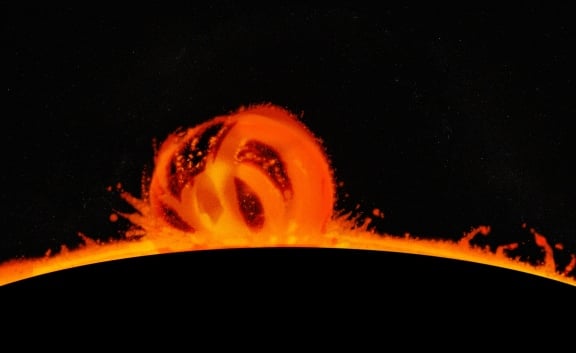If history is any guide, some tech stocks may well be cheaper next week
A solar storm heading to Earth today may affect radios, flights and people's moods. It may also hurt stocks, according to a study by the Federal Reserve of Atlanta.
The average annual performance of the Standard & Poor's 500 Index of close to 8%. But in the five days after a solar storm, the large-cap index has averaged just under a 1% loss.
Likewise, the annual average return on the NYSE Composite index since its inception is 9%. But the average for the five days following a solar storm is a drop of about 1%.
Tech stocks get hit the worst, which makes sense considering the powerful magnetic storm interferes with mobile telephony and satellites and the like.
Proof? The average annual return on Nasdaq since its inception is slightly more than 12%. But for the five days following a solar storm the index has recorded a drop of nearly 3%.
The Fed attributes the slumps to changes in human behavior, judgment and risk taking.
“The markets are always looking for a specific buy or sell signal, or a well-signposted catalyst, but sometimes Mother Nature likes to remind us that some events can't be factored into algorithms and black-box trading,” said Paul Robinson, a futures broker at ICAP Plc in London.
The sun erupted March 6, with the largest solar flare in five years on course to hit Earth at about 7 a.m. New York time today, the Associated Press reported yesterday, citing the Space Weather Prediction Center. Radiation emitted by flares may disrupt radio communication, power grids and satellite navigation.
The Fed's research paper, entitled Playing the Field: Geomagnetic Storms and the Stock Market, was written by Anna Krivelyova and Cesare Robotti.
--Bloomberg News--







